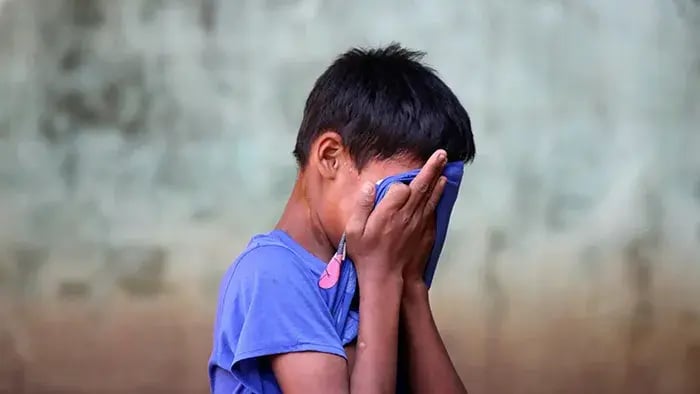Sleep and Exam Preparation: Ensuring Your Child Gets Enough Rest....................
- Isolation
- Depression
- Behavioral problems
Introduction
There are various types of anxiety that can make children isolated and lonely without their parents knowing. Anxiety is becoming a very serious issue in children, which is necessary to address. Anxiety can be of different aspects, such as separation anxiety, exam anxiety, and many others.
Similar to all these forms of anxiety, there is a term known as social anxiety. Social anxiety is typically high in Indian children because of harsh societal expectations and orthodox perspectives.
Social anxiety can also be of different types. Anxiety from crowded places, parties, family gatherings, and many more. Parents need to understand social anxiety from a wider angle to help their children battle it. Keep on reading to know more.
Understanding Social Anxiety

Social anxiety is a very broad term that includes any kind of interaction, from children to other people or children in a nervous state. Children will feel anxious about communicating with each other, new friends, parents, and other elders. The nervousness of meeting new people or communicating with old ones can also be seen as a state of social anxiety. Social anxiety can be different in children according to their perspective and upbringing. Unpleasant social situations and low self-esteem usually cause social anxiety in children, where they fear facing any kind of crowd or new individuals.
Reason Kids Face Social Anxiety: Triggers
There are multiple reasons for social awkwardness and anxiety in children from a young age.
- As mentioned earlier, children who have unpleasant memories of awkward childhood gatherings or incidents can be fearful of facing crowds in the future.
- Similarly, social anxiety can also be triggered in children with one-on-one conversations where they need to communicate.
- Harsh societal expectations and severe judgmental bashing/ shaming in children from an earlier age can make them hide out of social anxiety.
- Bullying is another primary reason that can affect children's social abilities, creating a state of anxiety.
- Social anxiety can also be triggered due to a lack of open communication between parents and children. Children fear communicating their feelings because they have been ignored since childhood.
How Can Parents Help Kids With Social Anxiety?

There are multiple ways in which parents can help children with social anxiety.
- Parents should always encourage their children to be vocal about their feelings and communicate when they need help. This will promote open communication, which will help children overcome their social anxiety.
- Social anxiety can easily be tackled among children by letting them attend various social gatherings, starting with smaller ones first. If the children are confident enough to speak up, they can easily be part of any social group without anxiety.
- Parents should guide children slowly and patiently. First, parents should navigate and resolve children's inner doubts to resolve social anxiety. This helps children be bold with their points, as they believe in themselves and have higher self-esteem.
What Are The Early Signs Of Social Anxiety?

There are specific signs that parents should recognize early to help children with social anxiety.
- Children will always feel nervous while attending social gatherings and functions. Severe cases of social anxiety can also cause children to avoid school.
- Children constantly move or avoid eye contact with strangers while initiating conversation.
- Children exhibit constant fidgeting, touching their faces, biting nails, and stuttering in their voices.
- Children are also seen to sweat excessively as they are nervous about social interactions.
- Children are often moody around people and are always walking on eggshells.
- People pleasing in children can also be seen as a symptom of social anxiety.
- Over-friendliness, constant talking, and dissociation are also common symptoms of social anxiety in children.
What Are the Prolonged Effects Of Social Anxiety?
There can be various effects of social anxiety in children:
Isolation
Children will isolate themselves if social anxiety persists for a longer period. Children who are suffering from social anxiety find peace among themselves. It is a common behavioral pattern of children shutting down their emotions due to fear of meeting new people.
Depression
Children will soon fall into depression with no one on their side because of fear of meeting new people and a socially anxious state. Treating depression is difficult in children as they are anxious to explore and unknown various alternatives because they are still a child.
Behavioral problems
Children with social anxiety are constantly irritated and moody around crowds and people. This can elevate behavioral problems and make children's lives difficult. Children with behavioral problems caused by social anxiety will face criticism from all over.
Conclusion
Social anxiety is common in most Indian children who are introverted. Children who are very conscious about their self-image are also victims of social anxiety. Parents should constantly watch over their children to manage any kind of mental disorder or situation that burdens them. Mental guidance and support are essential for children to grow into healthy, confident adults.
Smriti is a content writer who creates clear, practical, and informative content backed by science and relevant data. With a strong understanding of structured writing, she breaks down complex topics into simple, actionable insights. Her work is focused on helping readers prepare, learn, and grow with confidence and clarity.
The views expressed are that of the expert alone.
The information provided in this content is for informational purposes only and should not be considered a substitute for professional medical advice, diagnosis, or treatment. Always seek the advice of your physician or another qualified healthcare provider before making any significant changes to your diet, exercise, or medication routines.
Reference
https://ijip.in/wp-content/uploads/ArticlesPDF/article_f25764d99479cb4fe1926d147b2245ea.pdf
















